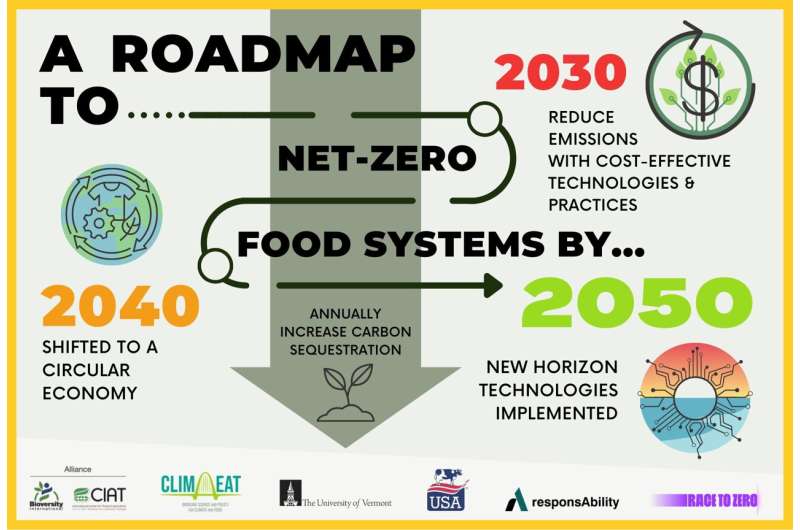Envisioning net-zero food systems

A new assessment of over 60 scenarios based on current low-emission practices shows that realizing net-zero food systems will require widescale adoption of new technologies in the next two decades and changes in meat and dairy consumption. A more diverse set of practices and innovative research, including diet shifts and new-horizon technologies, will be needed for this transformation.
Food systems emit approximately 35% of global greenhouse gas (GHG) emissions. As the global population is expected to grow to 9 billion by 2050, food demand will increase rapidly, and agriculture production must follow.
"Transforming food systems for net-zero is essential for the whole Paris Agreement equation to work and deliver on the need to limit the temperature increase to 1.5˚ C above pre-industrial levels by 2050, with important benefits for the resilience of millions of people around the world," says Federico Bellone, co-author of the study, from the UN High Level Climate Champions & Race to Zero.
However, there are no silver bullet solutions that work across local, regional and global scales. Local and regional food system intensification must identify locally relevant strategies to meet socio-economic and environmental targets.
"While net-zero food systems are achievable, bolder implementation of more efficient production practices is fundamental to meet both global food production and climate goals," says Ciniro Costa Jr., lead author of the study, form the Alliance of Bioversity International & CIAT.
To achieve net-zero, the global food system must implement cost-effective mitigation practices and technologies by 2030 and improve country governance and technical assistance by 2040. By 2050, the system must implement innovative financial mechanisms and affordable technologies to achieve a net-zero emission global food system.
This roadmap presents milestones; we cannot wait to start changing consumption patterns and developing new technologies. We must start now. The research was published in Scientific Reports.
More information: Ciniro Costa et al, Roadmap for achieving net-zero emissions in global food systems by 2050, Scientific Reports (2022). DOI: 10.1038/s41598-022-18601-1
Journal information: Scientific Reports
Provided by The Alliance of Bioversity International and the International Center for Tropical Agriculture





















